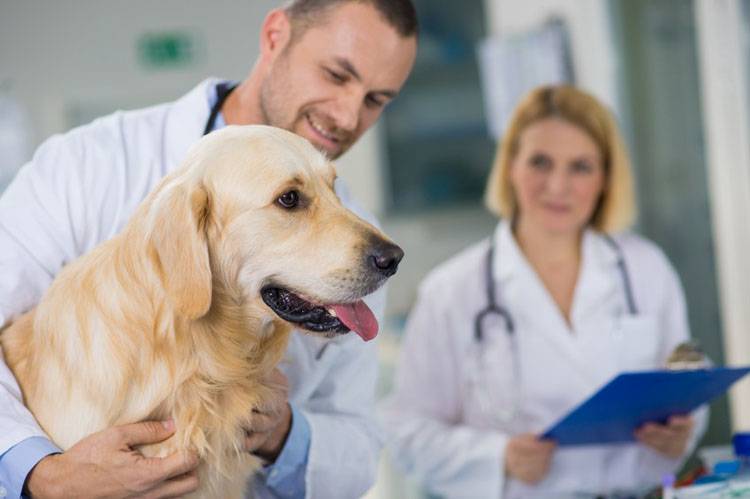Senior Pet Care
By Jennifer Woodward, RVT
How often do you take your pets to the veterinarian? Every owner should have his pet examined at least once a year. If your pet is older, you should take him in for a checkup every six months.
Why Do Older Dogs Need to Be Seen More Often?
As with humans, dogs can develop health problems as they age. The rate of aging in a typical family pet is much higher than that of a human. For all dogs, the first year of life (in human terms) equals 15 dog years—that’s a lot higher than the seven-to-one ratio myth. At five years, the average dog is about 36 years old.
Once an animal reaches six years of age, the size of the animal comes into play. A large breed dog (weighing in around 50-plus pounds) will begin accumulating more dog years than that of a small breed dog (weighing in around 20 pounds or less).
For example, a large breed dog at age 10 will be the equivalent of a 66-year-old man whereas a small breed dog will be the equivalent of a 56-year-old human. That’s about a 10-year age difference.
What to Expect
Blood and Urine Tests
One critical part of an annual exam is blood and urine tests. A young healthy dog may only need a basic blood panel to check for parasites and organ functions. In contrast, older pets may need additional testing to determine how well their liver, kidneys and basic body chemistry are functioning. These tests can also reveal issues with a dog’s thyroid and lymph nodes.
For older pets, the veterinarian may order imaging diagnostics, such as radiographs. These are important, as they will show if arthritis is beginning to form within the joints. Early detection can greatly help with your dog’s longevity as well as his quality of life.
Preventive Treatment
The physical examination is also a good way for dog owners to learn about any parasites that can be found in their areas as well as the various preventative treatments that can be done to prevent infestation.
A trip to the veterinarian is just as important for your dog as it is for you. The length and quality of your dog’s life can be enhanced through the knowledge gained during an exam.
Have you taken your dog in for his annual exam?





